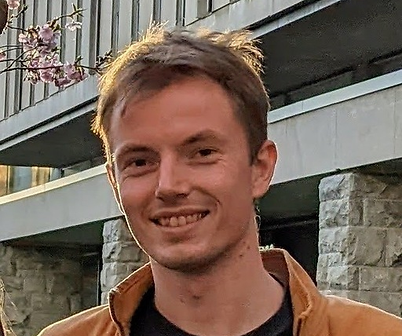Logan Wright Applied Physics Laboratory

People
Open positions
If you are interested in joining the lab, either as a PhD student, post-doc, or some other kind of colleague, please see below for some case-specific details.
If you are interested in pursuing a PhD at Yale in our lab:
If you have logistical inquiries about the Yale Applied Physics PhD program, please start here. Beyond that, feel free to reach out to me by email (and ideally include a CV with publication list). Students should apply before the December 15 Yale graduate school deadline.
A bit about what to expect: PhD students should in most cases expect to perform a mixture of experiments and computation, with some theory, and with plenty of discussion, writing, and presentation. Our experiments and prototypes mostly involve optics and photonics, but may also involve other ingredients, such as nano- or macro-scale 3D printing, fluids, acoustics, granular media, and analog electronics. For most projects there will also be a significant component of computer-based work involving, e.g., machine learning, physics-based simulations, and automation of experiments.
The PhD is and should be an individualized process, but let me make some generalizations for the sake of context. PhDs in applied physics generally start with a concrete, challenging project that helps students build up technical mastery over a year or so. Students generally take courses during the first year as well. Building on this, students will then, in collaboration with myself and their colleagues, arrive at a more substantial and original research direction (within the scope of the lab) that will usually serve as the core of their dissertation. This more substantial project will usually involve publishing several papers, and may take an additional 3-6 years. Throughout this process, students will meet both with myself (somewhere from daily to weekly, depending on the context) and their colleagues for ongoing discussion and guidance. Virtually all projects are collaborative in nature, albeit to varying degrees. Ultimately, science is a collective human enterprise, and I view the single highest priority of my research group to be supporting the people within it as they grow as scientists. I expect PhD students and other lab members to maintain a similar prioritization, and, collectively, to facilitate a culture of collaboration and collegiality. Of course, I do not view this prioritization as compromising the lab's realization of important, original, and rigorous science: My experience has always been that the more people feel valued and secure, and the more they are having fun and feeling that their work is important, the better and more original is their science.
PhD students in Yale Applied Physics do not pay their own tuition, and are provided generous cost-of-living stipends, health insurance and other benefits during their PhD studies.
If you are a PhD or near-PhD interested in a post-doc in our lab:
Please contact me by email and we can chat more, including about specific projects or directions. When you get in touch, please include a CV with publication list, and a brief description of your research interests, goals, and/or skills.
For post-doc candidates, I view prior experience with ultrafast lasers, quantum optics, quantum information, and/or neural networks as helpful, but not essential. Please also mention if you have experience in robotics, high-performance computing, 3D printing, fluid dynamics, or acoustics. If you know of postdoctoral fellowships you are eligible for (see, e.g., lists here and here), please also mention these. Although external fellowship support is not always necessary to join our lab, writing a proposal together can be a good way to trial-run collaboration, generate ideas together, and may add a little prestige, independence, or flexibility to one's post-doc.
Visitors or other kinds of collaborators:
Even if you do not fit into one of the categories above, if you're passionate about the topics we work on, there may be ways we can work together, either locally or remotely. Please reach out by email, Twitter, or LinkedIn.
I look forward to doing science together!
- Logan G. Wright
Lab Alumni
Ming Jian, visiting undergraduate student 2024-2025
Ziyu Zhan, visiting PhD student, 2023-2025

.png)



.png)


